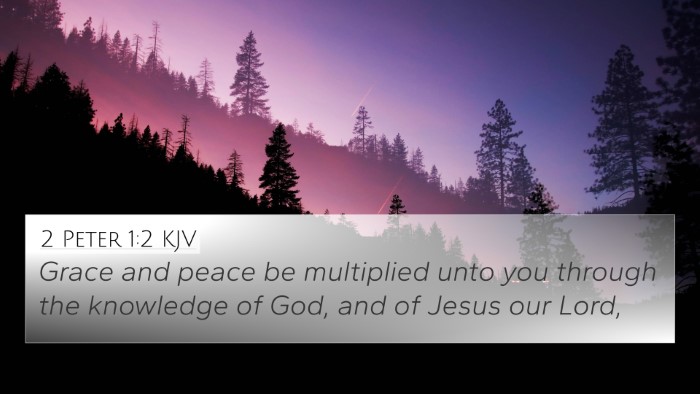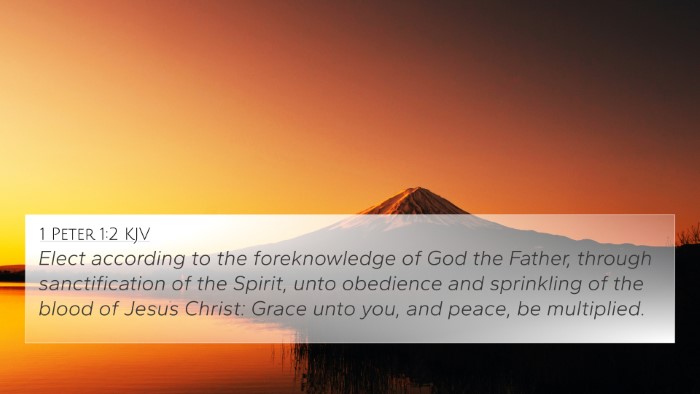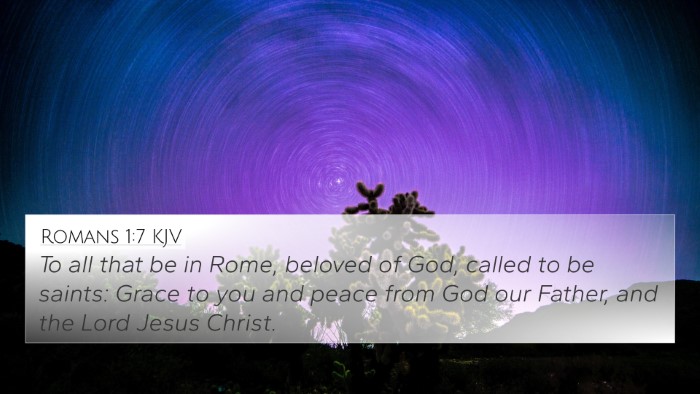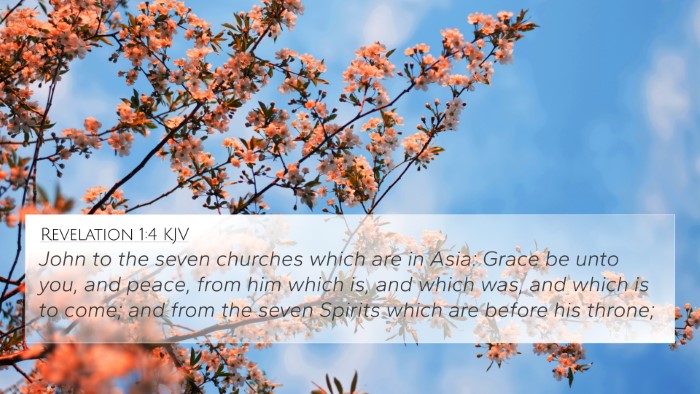Understanding Jude 1:2
Bible Verse: Jude 1:2 - "Mercy unto you, and peace, and love, be multiplied."
Summary of Jude 1:2
This short yet profound verse encapsulates the essence of Christian blessings. Jude, the author, expresses a desire for three key elements—mercy, peace, and love—to be multiplied among his readers. The significance of these elements emerges from a thematic analysis of biblical texts engaging in similar concepts.
Commentary Insights
-
Matthew Henry: Henry emphasizes that Jude's greeting is not merely formal but reflects deep spiritual truths. The plea for mercy indicates the need for divine favor, emphasizing that human shortcomings require God’s grace. Peace denotes tranquility among believers and a harmonious relationship with God, while love stands as the foundation of all Christian virtues.
-
Albert Barnes: Barnes notes that the order of the blessings—mercy, peace, and love—is intentional. He suggests that mercy leads to peace, which in turn fosters love. The multiplication of these virtues signifies growth in the believer’s life, encouraging a thriving Christian community.
-
Adam Clarke: Clarke points out the Trinitarian aspect of Jude’s blessing. He connects each element to the Godhead, suggesting that the multiplication signifies a profound relationship with God. His emphasis on prayer underscores the plea for these divine gifts to be abundant in the believer’s life, supporting the concept of intercession among Christians.
Bible Verse Cross-References
Exploring connections between Bible verses deepens our understanding of Jude 1:2. Here are notable cross-references:
- Psalm 85:10: "Mercy and truth are met together; righteousness and peace have kissed each other." This verse relates the themes of mercy and peace found in Jude 1:2.
- Romans 5:1: "Therefore being justified by faith, we have peace with God through our Lord Jesus Christ." This reinforces the concept of peace stemming from a relationship with God.
- 1 John 4:16: "And we have known and believed the love that God hath to us. God is love; and he that dwelleth in love dwelleth in God, and God in him." This illustrates the importance of love as a core tenet of faith.
- 2 Peter 1:2: "Grace and peace be multiplied unto you through the knowledge of God, and of Jesus our Lord." This verse mirrors Jude's blessing, highlighting the connection between grace, peace, and divine knowledge.
- John 15:12: "This is my commandment, That ye love one another, as I have loved you." This commandment connects to the theme of love in Jude 1:2.
- Ephesians 4:2-3: "With all lowliness and meekness, with longsuffering, forbearing one another in love; Endeavoring to keep the unity of the Spirit in the bond of peace." This illustrates how believers should embody mercy, peace, and love in their interactions.
- Titus 3:5: "Not by works of righteousness which we have done, but according to his mercy he saved us..." This verse emphasizes the importance of mercy as foundational to salvation, linking to Jude’s message.
Thematic Connections
Through a comparative analysis of theological themes, we can see that Jude 1:2 aligns with the broader narrative of scripture on grace and relational dynamics between God and mankind.
- Mercy: Essential for salvation, linking to God's nature and human need.
- Peace: Reflects the state of being reconciled with God and each other.
- Love: Central to the Christian faith, responsible for community and ethical living.
Cross-Referencing Biblical Texts for Deeper Understanding
For those interested in cross-referencing biblical texts, consider the following techniques:
- Use a Bible Concordance: Find relevant verses related to mercy, peace, and love to deepen understanding.
- Engage in Cross-Reference Bible Study: Use tools like parallel Bibles that lay out similar verses for easy comparison.
- Explore Biblical Chain References: Follow thematic chains throughout scripture to see the interconnectedness of these concepts.
Conclusion
Jude 1:2 serves not only as a benediction but also as a profound reminder of the central tenets of faith—mercy, peace, and love. By utilizing tools for Bible cross-referencing, believers can explore the richness of scripture as they engage with Jude's message in greater depth.
Encouragement for Further Exploration
As you study Jude 1:2, consider asking:
- What verses are related to this passage?
- How do the themes of mercy, peace, and love appear throughout the Bible?
- What practical steps can I take to embody these virtues in my life?






